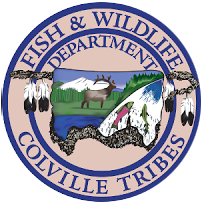Columbia River System Operations EIS
Does the Columbia River Systems Operation (CRSO) Environmental Impact Statement (EIS) Review address Salmon Passage above Chief Joseph and Grand Coulee Dams?
The U.S. Army Corps of Engineers (USACE), Bureau of Reclamation (BOR), and Bonneville Power Administration (BPA) are preparing an environmental impact statement (EIS) on the operations, maintenance and configurations for 14 federal projects in the Columbia River System. The agencies are providing alternatives for long-term system operations and are evaluating the potential environmental and socioeconomic impacts on flood risk management, irrigation, power generation, navigation, fish and wildlife conservation, cultural resources, water quality and recreation. The Colville Confederated Tribes (CCT) believes the alternatives need to include salmon passage.
Grand Coulee Dam /Lake Roosevelt is such a large and important storage reservoir for power production, irrigation, recreation and flood control that operational modifications benefiting local resources are very difficult CCT will assess the potential impacts to present salmon populations below Chief Joseph Dam once the modeling and analysis of the four (4) Multi-Objective alternatives are completed. CCT will also address whether reintroduced salmon populations above Chief Joseph and Grand Coulee Dams are adequate in any of the alternatives. The completed research and the EIS’ inclusion of phased investigation of climate change and thermal warming that impacts present and reintroduced salmon populations is a reasonable and logical approach.
CCT is a Cooperating Entity and we have the following concerns with the Multi-Objective Alternatives.
(1) the CRSO EIS does not include any tangible benefits for the upper Columbia;
(2) the CRSO EIS provisions for full build-out of the Columbia Basin Project and reshaping water withdrawals for the Odessa Sub-area in 3 of 4 multi-objective alternatives are likely to be rejected by NOAA as detrimental to anadromous and residential fish;
(3) the Upper Columbia has been the most affected and least mitigated area because of the construction and operation of the Federal Columbia River Power System (FCRPS). A Preferred Alternative that has no benefits and has negative impacts to upper Columbia resident fish populations marginalizes BPA’s ability to mitigate is an injustice to the CCT.
CCT continues to work collaboratively with the Co-Agency leads in the development of a CRSO Preferred Alternative and mitigation actions that provides equitable benefits for the Upper Columbia River Basin.
